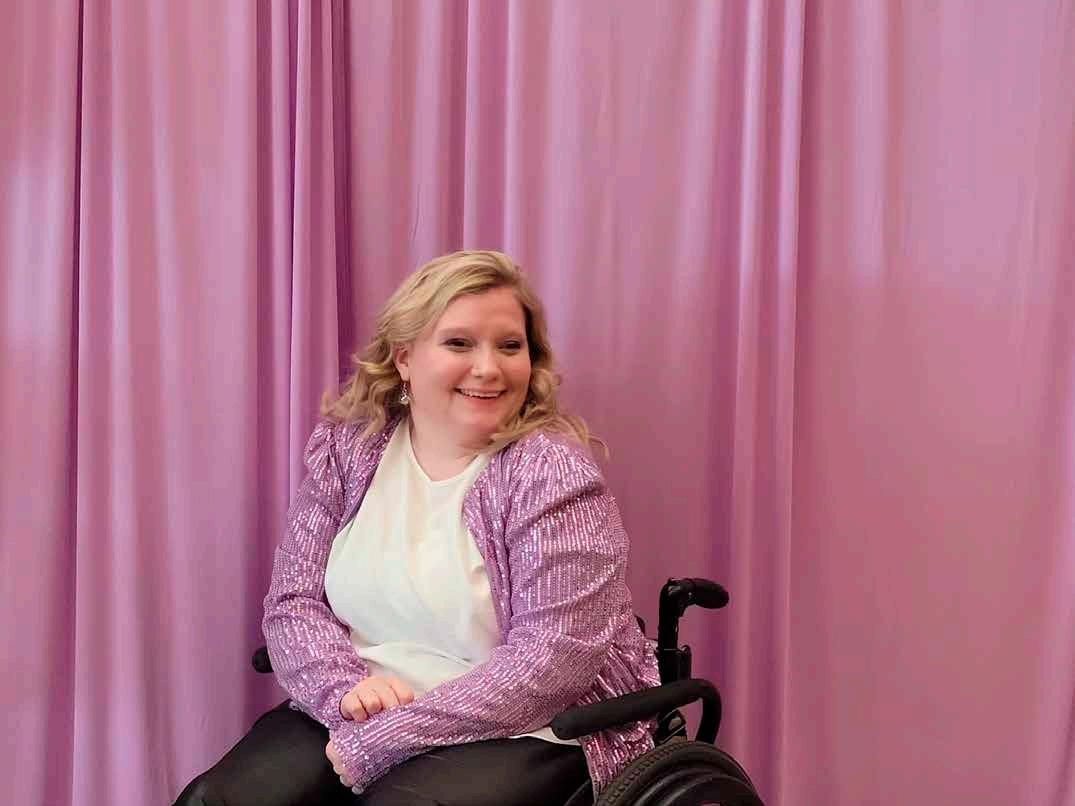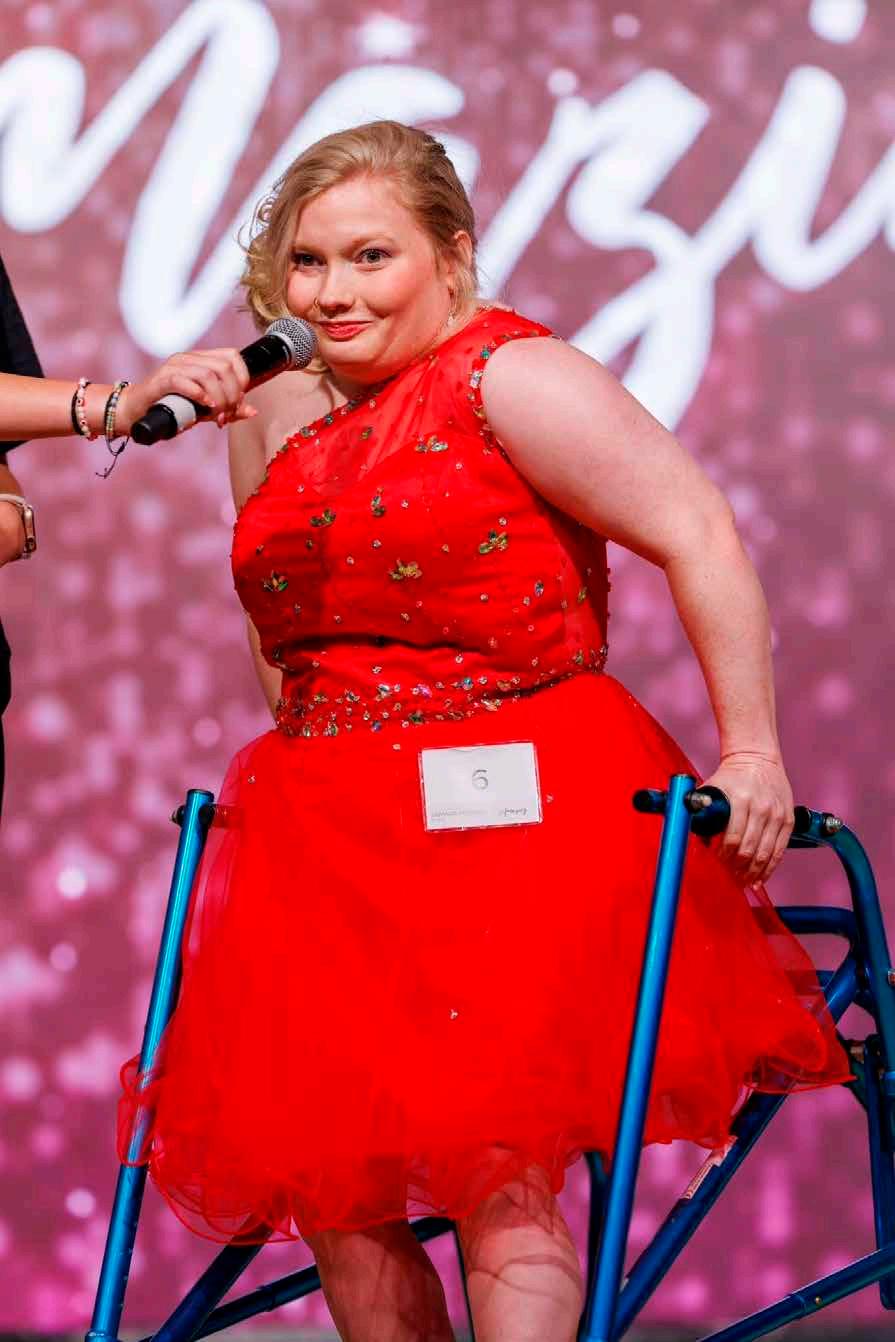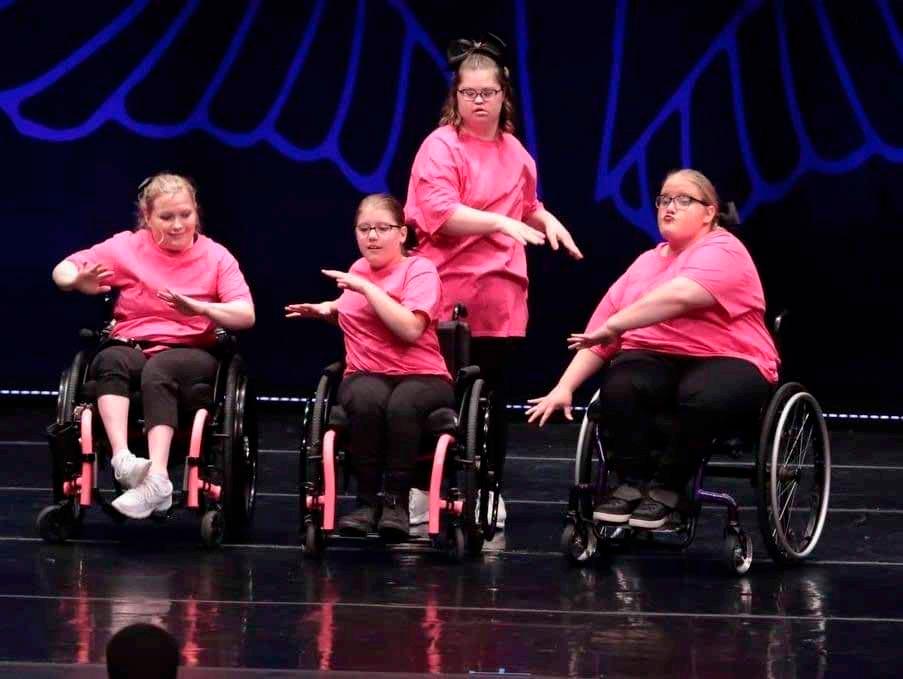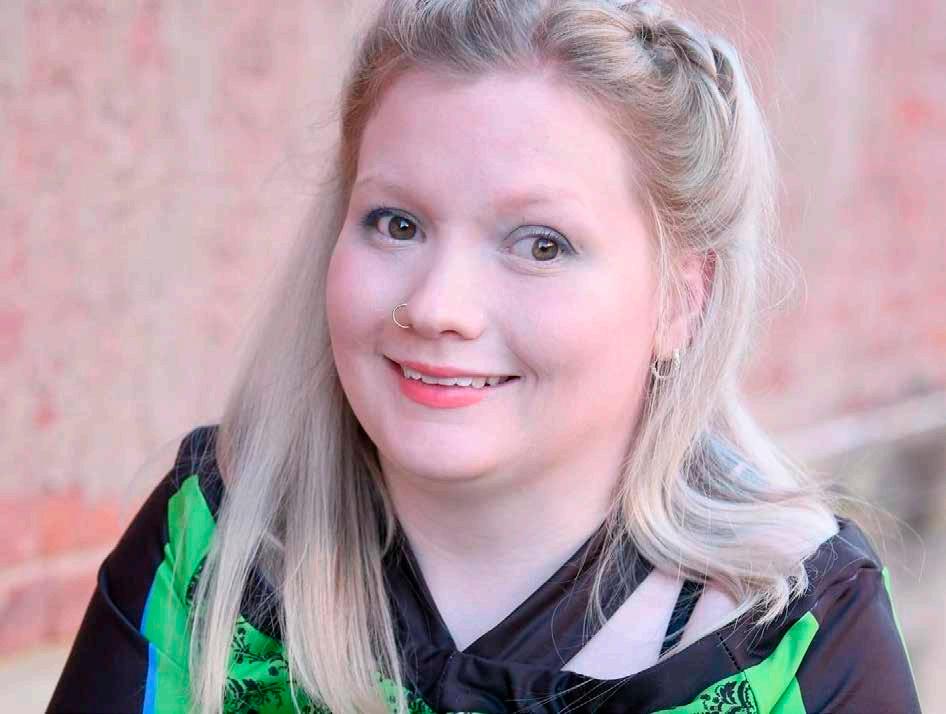
4 minute read
SELF ADVOCATES
Meet Samara Pfeiffer
Empowering voices: the journey of a self advocate
BY SAMARA PFEIFFER
In a world that often underestimates the power of individual voices, being a self-advocate stands as a testament to resilience, determination, and the unwavering pursuit of change. I have embraced this role wholeheartedly, recognizing that a voice, once found, can be a catalyst for transformation.
So, what does it mean to be a self-advocate? To me, it’s about fearlessly using one’s voice not only to meet personal needs but also to champion the rights of others.

A self-advocate, in my perspective, is someone unafraid to wield their voice in the pursuit of their needs. It means breaking free from the shackles of silence, refusing to let fear hinder the expression of one’s desires and, crucially, advocating for others who may struggle to be heard. It’s about empowerment through vocalization.
Becoming a self-advocate has been a revelation in my life. It goes beyond recognizing the importance of my own voice; it has ignited a passion to guide others in finding and utilizing their voices too. It’s not just about personal empowerment but also about fostering a community where every voice is valued and heard.

My journey into self-advocacy had its roots in the challenges I faced in high school. The institution was not wheelchair-accessible, and I often felt like my voice didn’t matter. This realization came to a head in my senior year of college. I decided then that I wanted to change the narrative for women with disabilities.
In 2020, I co-created “Taking Her Voice Back,” an initiative aimed at empowering women with disabilities to share stories of strength.

Becoming a self-advocate for me was not just a choice; it was an inherent part of who I am. My brother and I were misdiagnosed with cerebral palsy for 30 years, only recently discovering our true condition—PNPT1 Mitochondrial disease. I’ve always been a fighter, relentless in the face of adversity. What I enjoy most about being a self-advocate is the opportunity to mentor others and witness their incredible growth. There’s a profound satisfaction in knowing that my journey inspires and guides others on their path to self-advocacy.
Becoming a self-advocate requires an abundance of self-motivation and gumption. It’s about finding the courage within to challenge the status quo and advocate for change. To those interested, I would encourage joining organizations like Self Advocates of Indiana or Arc of Indiana. These platforms provide not only a supportive community but also valuable resources for honing advocacy skills.

Beyond my advocacy work, my life is filled with activities that bring joy and fulfillment. From cheerleading and dancing to working out and participating in pageants, each endeavor adds vibrancy to my existence. I cherish moments spent with friends and family, find solace in attending church, dedicate time to volunteer at the local senior center, and engage in motivational speaking—a passion that fuels my sense of purpose.
Looking ahead, I envision someday writing a memoir—a testament to my journey, struggles, and triumphs. Additionally, I aspire to become a motivational speaker, reaching a broader audience to inspire positive change and resilience.
Home is a haven filled with the warmth of family—my mom, dad, and brother. Our household is complete with the delightful presence of our dog, Abner, and our cat, Opal. Beyond the familial embrace, I’ve found an enriching community at the Arc of Indiana.
Working with this organization has not only allowed me to contribute to a cause I believe in but has also introduced me to amazing individuals who have become lifelong friends.

In conclusion, being a self advocate is not just a role; it’s a journey of self-discovery, empowerment, and making a difference in the lives of others. My story is a testament to the transformative power of embracing one’s voice and using it to break down barriers, fostering a world where every individual, regardless of their circumstances, is heard and valued.










